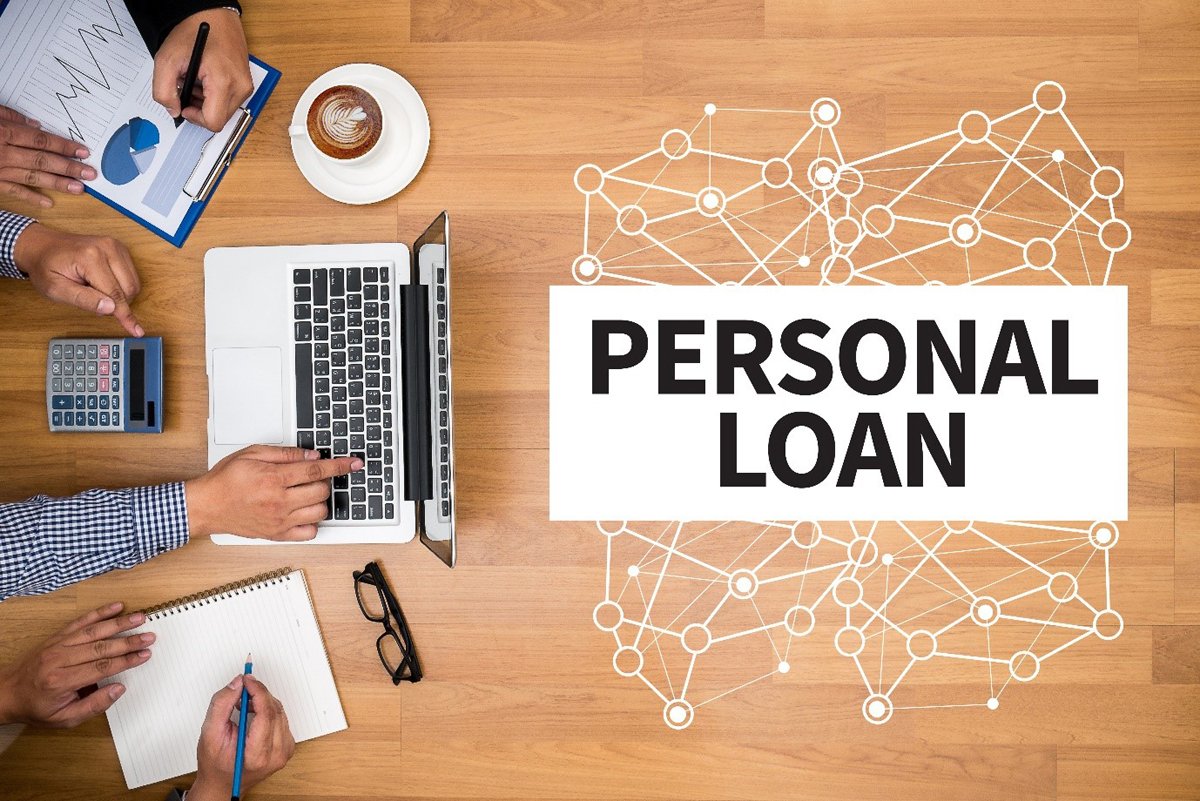Understanding Student Loan Forgiveness
Student loan forgiveness refers to the cancellation or discharge of a borrower’s obligation to repay a portion or the entirety of their student loans. This program is designed to alleviate the financial burden many graduates experience, allowing them to focus on their careers and personal lives rather than being weighed down by debt. Recognizing the economic and social implications of student debt, government entities and various organizations have developed programs that aid borrowers in obtaining forgiveness under certain conditions.
Forgiveness options typically require borrowers to meet specific criteria, which can include employment in certain sectors, completion of designated repayment plans, or a track record of making consistent payments over a set period. For instance, Public Service Loan Forgiveness (PSLF) is a widely recognized program that forgives loans for individuals working in public service roles after making 120 qualifying monthly payments. In Las Vegas, there are also local initiatives that may offer additional avenues for relief, reflecting the community’s commitment to supporting its workforce.
When loans are forgiven, the remaining balance is discharged, effectively ending the borrower’s obligation to continue making payments. However, the process of repayment can become complex, especially when considering income-driven repayment plans that may also lead to forgiveness after a specified timeframe. For borrowers interested in pursuing student loan forgiveness in Las Vegas, understanding the available options and their stipulations is crucial to making informed decisions.
This overarching strategy not only assists individuals in mitigating their debt but also serves to stimulate local economies by enabling professionals to funnel their resources into other aspects of their lives. As such, comprehending the intricacies of student loan forgiveness is essential for those seeking financial relief in the face of rising education costs.
The Landscape of Student Loan Debt in Las Vegas
Student loan debt has become a pressing issue for many individuals in Las Vegas. As of recent statistics, the average student loan debt for graduates in this city stands at approximately $30,000. This figure is nearly in line with the national average; however, the unique economic conditions in Las Vegas can exacerbate the challenges faced by borrowers. The impact of this debt is profound, influencing not just personal finances but also broader economic stability.
The cost of living in Las Vegas, while more affordable than cities like San Francisco or New York, remains significant, particularly in comparison to local wage levels. Many graduates find themselves in entry-level positions that do not afford them the luxury of comfortably repaying their student loans. A study conducted in 2022 revealed that over 60% of recent graduates in Las Vegas report that their student loan payments significantly hinder their ability to afford basic necessities, such as housing, food, and transportation. This financial strain often leads to delayed life milestones, including homeownership and starting a family.
The city is also witnessing a growing concern regarding the long-term implications of student loan debt, as many graduates feel overwhelmed by the prospect of repayment. With the increasing prevalence of student loan forgiveness options, residents are seeking information on how they can alleviate their financial burdens. Notably, programs offering student loan forgiveness in Las Vegas are intended to support those in public service roles, essential occupations, or hurdles specific to the region. Understanding these options can be key to managing debt and achieving financial stability, yet many remain unaware of the resources available to them.
Types of Student Loan Forgiveness Programs Available
Las Vegas residents facing the burden of student loans have several avenues in which they can seek relief. Understanding the various student loan forgiveness programs available is crucial for borrowers eager to explore their options. One of the most recognized programs is the Public Service Loan Forgiveness (PSLF), designed for individuals who commit to working in public service jobs. Eligible borrowers can have their remaining federal student loans forgiven after making 120 qualifying monthly payments while working full-time for an eligible employer, which can include government entities or non-profit organizations.
Another significant program is the Teacher Loan Forgiveness program. This initiative aims to attract and retain qualified teachers in low-income schools or educational service agencies. Under this program, eligible teachers may qualify for forgiveness of a portion of their direct loans after five complete and consecutive years of service, with amounts ranging up to $17,500 depending on their subject area and teaching experience.
For those who may not qualify for PSLF or Teacher Loan Forgiveness, income-driven repayment plans also provide a form of student loan forgiveness. These plans adjust monthly payments based on the borrower’s income and family size. After making payments for 20 or 25 years, any remaining balance may be forgiven. Programs like the Income-Based Repayment (IBR), Pay As You Earn (PAYE), and Revised Pay As You Earn (REPAYE) can be beneficial for borrowers in Las Vegas, especially those in lower-paying jobs or with fluctuating incomes.
Additionally, there are specialized forgiveness programs aimed at specific professions such as healthcare workers or law enforcement. Each program generally has its eligibility requirements and application processes, underscoring the need for borrowers to thoroughly research and understand the options available to tailor their loan repayment strategies effectively.
Eligibility Requirements for Forgiveness Programs
When considering student loan forgiveness options in Las Vegas, understanding the eligibility criteria is paramount. Different programs may have varied requirements, largely based on the type of student loans involved, the borrower’s employment status, and residency criteria specific to Nevada.
Firstly, federal student loans, which include Direct Subsidized and Unsubsidized Loans, PLUS Loans, and Consolidation Loans, typically qualify for forgiveness programs. In contrast, private loans are generally not eligible. Borrowers should check the nature of their loans before pursuing any forgiveness avenues.
Employment qualifications play a crucial role in determining eligibility for student loan forgiveness in Las Vegas. Many programs, such as Public Service Loan Forgiveness (PSLF), require borrowers to work full-time in a qualifying public service position. This includes employment by government organizations or non-profit entities that offer services within the community. Additionally, borrowers must demonstrate a commitment to making consistent, qualifying payments over a specified period, usually 120 payments for PSLF.
Residency also influences eligibility for various programs. For instance, some state-specific forgiveness initiatives may demand that applicants reside and work within Nevada. These programs may target specific professions, such as teachers or healthcare workers, and often provide additional incentives for those who dedicate their careers to underserved areas or high-need fields.
Potential applicants should conduct thorough research on the specific requirements associated with each program, as they may diverge considerably. Understanding all facets of the eligibility, including loan types, employment settings, and residency stipulations, is essential for successfully navigating the complex landscape of student loan forgiveness in Las Vegas.
How to Apply for Student Loan Forgiveness
Applying for student loan forgiveness can appear daunting, but breaking it down into clear steps can simplify the process. To start, it is critical to identify which forgiveness program aligns with your situation, as various programs cater to different criteria such as occupation, repayment plans, and loan types.
Once you have determined the appropriate forgiveness program, the next step involves gathering necessary documentation. Commonly required documents include proof of income, employment verification, tax returns, and information regarding your loans. Ensure that all documents are current and accurately reflect your financial situation and employment status, as these will be crucial in assessing your eligibility for student loan forgiveness in Las Vegas.
After collating the required documentation, it is time to complete the application. Typically, forgiveness applications can be submitted online or via mail, depending on the program. When filling out applications, pay close attention to detail—double-check that all information is correct and that you have provided compelling evidence supporting your eligibility. Providing thorough and precise information will decrease the chances of your application being denied or delayed.
Processing times for applications can vary widely depending on the program and the volume of applications being handled. Generally, expect a review period of several weeks to a few months. During this waiting period, maintain communication with your loan servicer and stay abreast of any updates or requests for additional information. Being proactive can expedite your application. Lastly, be prepared to appeal if your application is initially rejected; many forgiveness programs have provisions for review. Following these steps will enhance your chances of successfully securing student loan forgiveness.
Common Challenges in Securing Loan Forgiveness
Applying for student loan forgiveness can be a daunting process that many individuals in Las Vegas face. One of the most prevalent challenges is the submission of incomplete or incorrect information in applications. Many applicants may inadvertently overlook vital details or misinterpret the requirements, leading to denials. Additionally, with the varying eligibility criteria across different forgiveness programs, understanding which documents are necessary can be complex. To mitigate this issue, it is advisable for hopeful applicants to thoroughly familiarize themselves with the specific requirements of their chosen program. They should consider double-checking all paperwork and seeking assistance from professionals or advocacy groups knowledgeable about student loan forgiveness.
Another significant hurdle is employment verification. Various loan forgiveness programs, particularly those associated with public service, require that applicants prove their employment status and related responsibilities. Individuals may face delays due to administrative inefficiencies, insufficient employer responses, or lack of proper documentation. This can be frustrating, especially for those who have diligently met the obligations of their employment. To address this issue, applicants may want to proactively communicate with their employers early in the process, ensuring that necessary documentation is prepared and that any required signatures are secured promptly.
Moreover, applicants can encounter looming concerns regarding application denials. When a student loan forgiveness application is denied, it can feel overwhelming. In such a scenario, understanding the denial reason is crucial. Most programs allow for reconsideration or appeals. Thus, it is essential for individuals to request feedback on their application and address any highlighted issues before reapplying. By remaining organized and informed, applicants can navigate these challenges more effectively and enhance their prospects for successful student loan forgiveness in Las Vegas.
Resources and Organizations Helping Students in Las Vegas
Las Vegas is home to a range of resources dedicated to assisting students seeking student loan forgiveness. Various local organizations, non-profits, and government bodies play crucial roles in providing support and guidance to those burdened by educational debt. These entities can help students navigate the complex landscape of loan forgiveness options available in Las Vegas.
One prominent organization is the Nevada Student Alliance, which represents the interests of students across the state. They provide comprehensive information on student loan repayment options and help students understand their rights and resources related to student loan forgiveness. Additionally, they regularly host workshops and informational sessions that can be invaluable for those navigating the intricacies of student debt.
Furthermore, the College of Southern Nevada offers a dedicated financial aid office that assists students in understanding student loan forgiveness programs. Their trained staff provides personalized counseling to help students explore the various federal and state programs available to them, including Public Service Loan Forgiveness and other initiatives designed to alleviate the burden of student loans.
In addition to educational institutions, local non-profits such as the United Way of Southern Nevada provide financial literacy resources and workshops that cover student loan management. They also offer one-on-one consultations, where struggling students can receive tailored advice about their loans and the potential for forgiveness.
Moreover, federal initiatives such as the Department of Education’s loan forgiveness programs have eligibility requirements that can be complex. Local government resources, including grants and scholarships, are often available to support students’ educational pursuits while mitigating the need for student loans.
Overall, students in Las Vegas seeking loan forgiveness have access to a variety of valuable resources and organizations that can provide guidance or financial assistance tailored to their individual circumstances.
Comparative Analysis of Low-Cost Education Options in Las Vegas
Las Vegas, a city widely recognized for its entertainment and tourism, also offers a variety of educational pathways designed to make higher learning more affordable. One critical approach to minimizing student loan debt is selecting low-cost education options, which can lead to substantial financial savings. Key alternatives include community colleges, trade schools, and online courses.
Community colleges in Las Vegas, such as the College of Southern Nevada, provide an accessible entry point for students pursuing higher education without incurring substantial debt. These institutions typically offer associate degrees and certificate programs at a fraction of the price of traditional four-year universities. Many community colleges also have robust financial aid programs, which can further alleviate the burden of tuition, thereby reducing the need for student loans. Additionally, these colleges often have flexible schedules and support services tailored for non-traditional students, making education more accessible for a wider audience.
Trade schools represent another viable option for students, offering concentrated training in various skilled professions such as healthcare, technology, and the arts. Institutions like the Nevada Career Institute and the ITT Technical Institute provide specialized courses designed to equip students with the practical skills demanded in today’s job market. By focusing on vocational training, trade schools allow students to enter the workforce more quickly, often at higher starting salaries, thus minimizing the reliance on student loans and promoting financial independence.
Online courses have gained popularity as an alternative education method, especially post-pandemic. Many universities and colleges in Las Vegas now offer accredited online degree programs that afford students the flexibility to learn at their pace. This format can significantly cut down on transportation and associated costs, making education more affordable. Furthermore, online courses often allow students to balance work and study more effectively, contributing to their ability to avoid taking on excessive student loan debt.
Success Stories: Las Vegas Residents Who Achieved Forgiveness
The journey towards student loan forgiveness can often seem overwhelming, yet many residents of Las Vegas have turned their challenges into success stories. These stories not only highlight the effectiveness of forgiveness programs but also serve as a source of inspiration for individuals currently navigating the complexities of student loans.
One notable example is that of Sarah, a graduate who accumulated significant student debt while pursuing her degree in nursing. After working for a non-profit hospital in Las Vegas for several years, she discovered she qualified for the Public Service Loan Forgiveness (PSLF) program. Through dedicated efforts to meet the eligibility criteria, Sarah successfully forgave over $40,000 in student loans. Her strategy included ensuring that her payments were made under a qualifying repayment plan and consistently working the requisite amount of hours in her role. Today, she advocates for the importance of understanding one’s options to achieve student loan forgiveness in Las Vegas.
Another inspiring narrative comes from John, a former teacher whose journey was rife with obstacles. Initially, he struggled to make his student loan payments due to financial hardships. However, he took advantage of income-driven repayment plans, which aligned his monthly payments with his earnings. After ten years of qualifying payments, John was able to reduce his student loan balance substantially, ultimately receiving forgiveness. His experience underscores the importance of persistence and utilizing available resources to navigate the student loan forgiveness process effectively.
These success stories reflect the diverse paths individuals in Las Vegas have taken to achieve student loan forgiveness. They underscore the potential for relief and provide practical insights into navigating the nuanced landscape of student loans. For those still on this journey, these real-life examples serve as a reminder that success is within reach through informed decision-making and commitment to the process.



